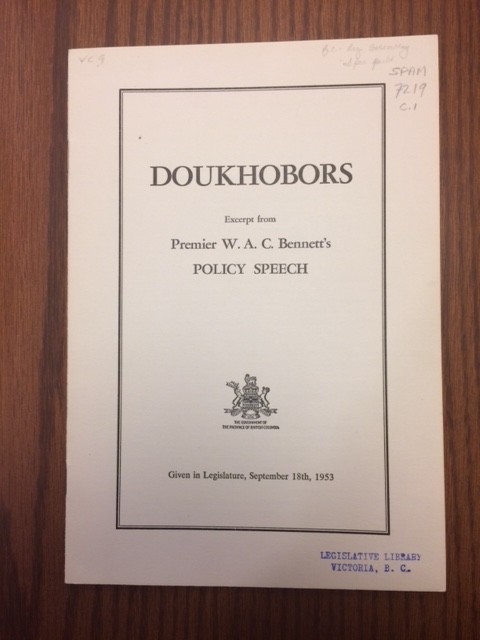The word “Doukhobor” is Russian for “Spirit Wrestler” (12). According to the Doukhobor faith, adherents “fight with the spirit of God” and “seek the spirit of truth” (13), which dwells within. They believe they are guided by the voice of God, making the Bible obsolete. The Bible they say is “the frozen wisdom of a past age” (12). Since they are guided directly by God, they refuse to permit the power of the state and church to dictate their actions (12).
As pacifists, they believe killing is a sin, even in times of war (12). They do not believe in Christian liturgy, or The Church. They refuse to honour sacraments. They “reject the doctrine of redemption,” and believe Heaven and Hell to be states of mind (12). They do not recognize traditional Christian marriage. Rather, they speak of the “free union between individuals,” not contracts bound by the laws of church and state (12).
Instead of erecting large churches and altars, the only symbols of their faith are the basic elements of existence: a loaf of bread, a “cellar” of salt, and a decanter of water, which are placed on a table in the middle of the room.
The early Doukhobors viewed themselves as eternal wanderers fleeing a “land of oppression” and a “state of confusion” toward the “promised land of enlightenment and truth” (12). They reject man made laws, and according to Doukhobor philosophy, God is the soul of the world who lives not as a separate being, but in the soul of the individual. The church itself is seen as a “den of robbers” (13).
